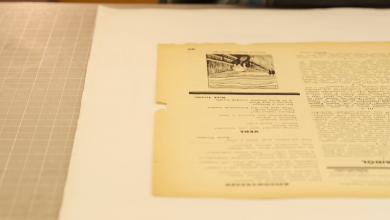Guns, Race, Abortion: Jennifer Haigh’s New Novel Humanizes Hot-Button Topics

Has Jennifer Haigh’s moment arrived? For years Haigh has been peering deep into the heart of lost America, sketching characters whose interests are at cross-purposes but whose deep-seated deprivation binds them together. She’s been a superb unsung novelist hovering just under the radar. And her 2016 “Heat and Light,” torpedoed by its nominal subject and unsexy title, was a small-town epic on the order of Richard Russo’s “Empire Falls.”
“Heat and Light” brought the hot-button issue of fracking to Bakerton, Pa., the fictitious coal town whose every boom and catastrophe Haigh has chronicled. (She comes from somewhere like it.) Her new book, “Mercy Street,” takes on much more fiery issues. Abortion, guns, vigilantism, drug dealing, white supremacy, bitter misogyny and online fetishism all figure in the tableau Haigh expertly details. If this can’t command attention, what can?
It’s a real question, since Haigh’s style is so unflashy. All she does is write straightforwardly about people she seems to know inside out. They’re the kinds of people who don’t often get close attention. Her books might feel traditional if she relied on simple structure, but she likes Altmanesque ways of weaving characters together. In her case, there’s nothing woozy to it. When some of these people collide, the eureka moments feel like car crashes.
Using a title taken from an Anne Sexton poem, she begins “Mercy Street” with Claudia, who’s 43, lives in Boston and has a high-stress job. Claudia isn’t really an urban type. She was born in Maine to a 17-year-old who probably didn’t want her. The junk caught in their trailer’s shag carpeting lives on in her brain. “She can still remember the first time she heard the term white trash. She was 9 or 10 years old, watching a stand-up comic on television, and she understood immediately that he was talking about people like her.”
“Mercy Street” opens on Ash Wednesday, 2015. Claudia is at work, fielding phone calls from pregnant women at a health clinic off Boston Common, knowing every call is a window into someone’s life. Outside, high protest season has just begun and will last through Lent. Most of the protesters are men. One will loom large in Haigh’s narrative, but not in any way you might expect.
Claudia has lived many lives before this. Her past seeps into the book partly by way of her reactions to callers and visitors. She’s repelled by privileged types who can afford to erase unwanted pregnancies from their bodies, their career prospects and their memories. Likewise, the addicts too wasted to care about near-viable fetuses also bring out her disgust. Women motivated by fear — a mother of four who thinks her ex might kill her — unleash her compassion. And she hates hearing the constant litany of “It was my fault.”
After hours, Haigh steers Claudia to a weed dealer named Timmy. In a book that’s by no means solemn and is full of quirks, the ever-stoned Timmy and his big plans and bigger TV screen serve as comic relief. Timmy doesn’t understand golf but watches it for its soothing tones: “the rolling green lawns, the announcers speaking in hushed voices as though a baby were sleeping.” Claudia likes lighting up with Timmy and just talking. She’s plastered layers of gentrification over her trailer upbringing with a mother who nudged her aside for countless foster kids. Timmy’s run-down place, where he meets a parade of buyers and broods about the imminent legalization of marijuana, feels somehow like home.
Claudia, Timmy and all of the book’s other players — including, inevitably, a couple of characters who hail from Bakerton — have one thing in common: They weren’t wanted. They were resented from birth. There are two “sisters” and two “brothers” who aren’t blood relatives but were raised grudgingly in the same households — and both pairs are fixated on women and what they represent, whether that’s sex or reproduction. These people come from wildly different ends of the political spectrum, but they were all damaged early in similar ways. Claudia was smarter than most, but when she was targeted at 13 by her mother’s older boyfriend, she didn’t know what he wanted. To marry her, or adopt her?
Haigh does as well with the book’s embittered male figures as she does with a woman whose beliefs she likely shares. (Haigh has worked in a clinic like Mercy Street.) They could easily be caricatures, but she tries to plumb their anger. Via a veteran and ex-trucker, she illustrates the way a bitter brew of abandonment, isolation, talk radio, racism, resentment and the internet can create hatred so intense it’s a murder waiting to happen. A hunter who knows so few women that he thinks of them clinically, as “females,” can target anything.
There are frissons of terror as the angry forces in “Mercy Street” become galvanized. (In a flashback, young Timothy McVeigh even has a cameo.) But as Haigh’s title suggests, she’s largely not interested in destruction here: These people have seen enough of it already. She’s interested in what makes them human.




